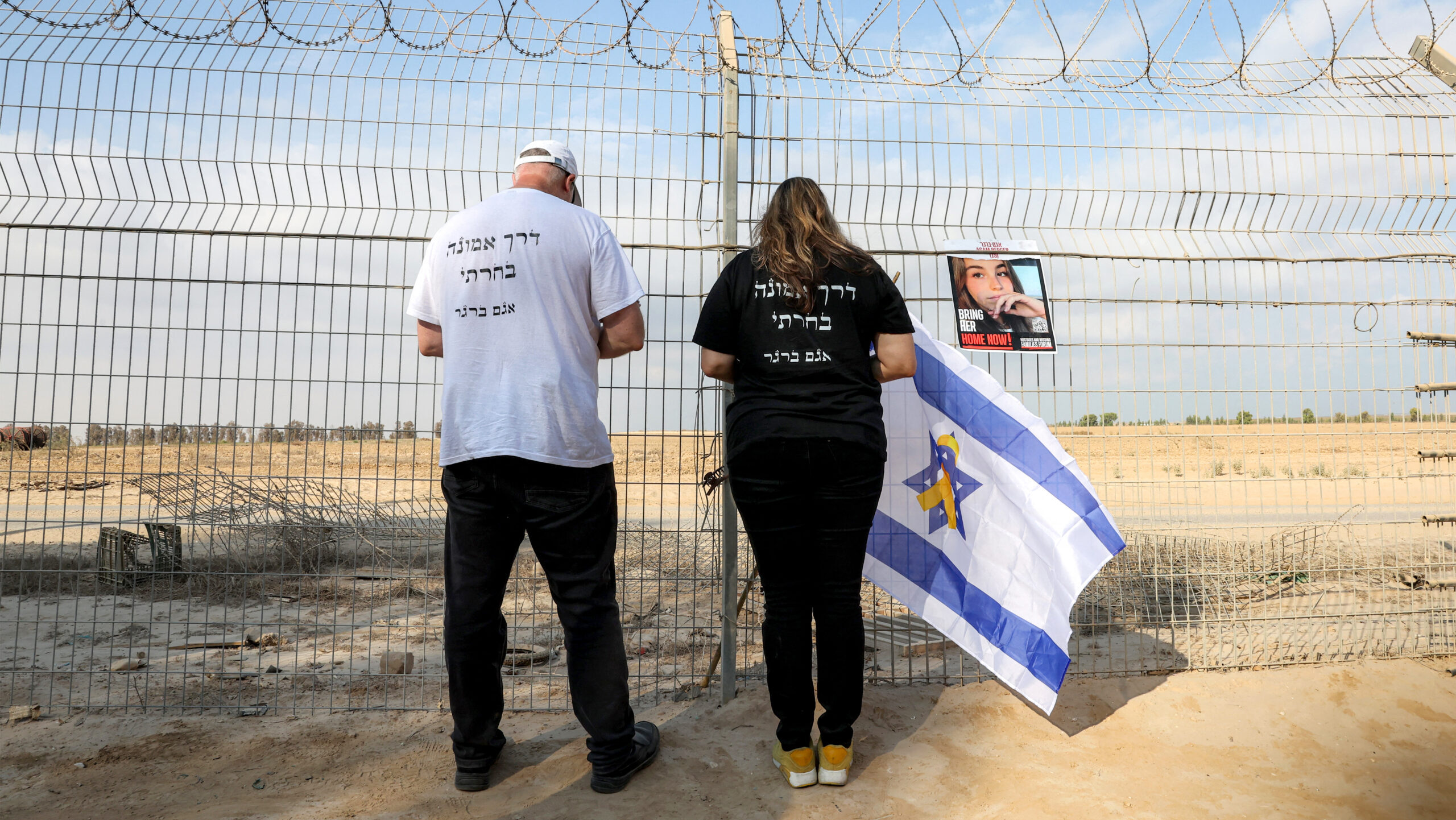Israeli Health Official Demands Transparency in Vaccination Process for Gaza Hostages
Health expert Hagai Levine urges WHO and UNICEF to vaccinate Israeli hostages in Gaza amid a polio outbreak, warning of severe health risks due to poor conditions and demanding transparency and action from international organizations
A senior Israeli health official has urgently appealed to the World Health Organization (WHO) and UNICEF to include Israeli hostages held in Gaza in the ongoing polio vaccination campaign, warning of severe health risks due to the dire conditions of their captivity.
The polio outbreak in Gaza poses severe risks to the hostages due to their prolonged exposure to poor hygiene, inadequate living conditions, improper drinking water, and lack of medical care.
Professor Hagai Levine, Head of the Health Division of the Hostages and Missing Families Forum and former Chairman of the Israeli Association of Public Health Physicians, has raised alarms over the deteriorating health situation of 107 hostages currently held by Hamas, including elderly individuals, women, and children. “The polio outbreak in Gaza poses severe risks to the hostages due to their prolonged exposure to poor hygiene, inadequate living conditions, improper drinking water, and lack of medical care,” Levine told The Media Line.
Levine emphasized that many of the hostages are unvaccinated or overdue for polio and tetanus boosters, making them especially vulnerable to the virus. “The unsanitary and confined environment, combined with improper drinking water, further increases the risk of polio infection and the spread of other diseases, making immediate vaccination crucial to protect the hostages from these life-threatening health dangers,” he said.
It’s not a question of whether we believe WHO and UNICEF will be able to deliver vaccines to the hostages; it’s their duty to do everything in their power to make it happen.
This holiday season, give to:
Truth and understanding
The Media Line's intrepid correspondents are in Israel, Gaza, Lebanon, Syria and Pakistan providing first-person reporting.
They all said they cover it.
We see it.
We report with just one agenda: the truth.
Please support TML's boots on the ground.Donate

In a letter to WHO Director-General Dr. Tedros Adhanom Ghebreyesus and UNICEF Executive Director Catherine Russell, Levine outlined the urgent need for the hostages, especially children, to receive vaccinations. “It’s not a question of whether we believe WHO and UNICEF will be able to deliver vaccines to the hostages; it’s their duty to do everything in their power to make it happen,” Levine stated.
Levine criticized international humanitarian organizations, notably the Red Cross, for their lack of concrete action. “For 10 months, their response has been, ‘Hamas isn’t giving us access, so there’s nothing we can do.’ It’s frustrating because it feels like these humanitarian organizations have either forgotten about the hostages or don’t see their situation as a priority,” he told The Media Line.
While we get a lot of sympathy and understanding for the hostages and their families when it comes to real action, we’re mostly met with excuses about why they can’t do more. There’s a clear gap not just between their statements and their actions but also between their willingness in meetings and what they’re actually doing or even saying publicly.
He also called on WHO and UNICEF to advocate more strongly for the hostages’ right to medical care and to be transparent about any barriers preventing access, expressing concern over international figures’ lack of decisive responses or commitments. “While we get a lot of sympathy and understanding for the hostages and their families when it comes to real action, we’re mostly met with excuses about why they can’t do more,” he noted. “There’s a clear gap not just between their statements and their actions but also between their willingness in meetings and what they’re actually doing or even saying publicly.”
Reiterating the urgency of the situation, Levine urged WHO and UNICEF to act immediately to include the hostages in the vaccination campaign and demanded that they publicly acknowledge any obstructions they face. “We hope to see them extend their assistance to the hostages as well. It is their obligation not to be silent in the face of injustice,” he added.
The hostages are in a life-threatening situation, and their lives depend on swift action from international health organizations. If they don’t get access, they need to publicly acknowledge that and specify who is preventing it.
Levine reiterated that the only way to secure the health and safety of the hostages fully is through their immediate release. “The hostages are in a life-threatening situation, and their lives depend on swift action from international health organizations,” he warned. “If they don’t get access, they need to publicly acknowledge that and specify who is preventing it.”
Simcha Pasko contributed to this report

